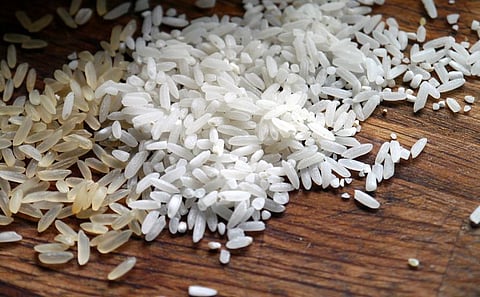

A Trump administration demand for Japan to increase purchases of U.S. rice has stalled bilateral trade talks, according to a Nikkei report.
Tokyo strongly opposed the condition, viewing it as interference in domestic affairs.
Japan’s top tariff negotiator, Ryosei Akazawa, abruptly canceled a U.S. trip on Thursday, citing unresolved administrative issues.
The two nations are working to finalize a July agreement reducing U.S. tariffs on Japanese imports to 15%.
The Nikkei, citing unnamed Japanese officials, reported that a revised U.S. presidential order included a commitment for Japan to buy more American rice.
This demand contradicted a prior agreement that Japan would not need to lower agricultural tariffs.
In the July deal, the White House stated Japan would boost U.S. rice imports by 75%.
Prime Minister Shigeru Ishiba emphasized that any increase in U.S. rice imports would occur within an existing tariff-free framework, ensuring no sacrifice to Japanese agriculture.
One official told Nikkei the U.S. proposal was an “interference in domestic affairs,” highlighting Tokyo’s resistance.
Akazawa’s canceled trip aimed to finalize Japan’s commitment to a $550 billion U.S.-bound investment package through government-backed loans and guarantees.
Japanese officials are pressing for an amended U.S. executive order to remove overlapping tariffs on Japanese goods before releasing a joint investment document.
Opposition leader Yuichiro Tamaki criticized the Japanese government’s handling of the trade deal, citing a lack of transparency.
“Because there is no written agreement, we cannot confirm what the problem is,” said Tamaki, head of the Democratic Party for the People.
He urged Prime Minister Ishiba to convene parliament and provide clarity, noting that new agricultural concessions would require legislative approval.
Tamaki expressed concern over “heightened uncertainty” for Japan’s auto industry and workers.
Japanese officials noted limited engagement with U.S. Trade Representative Jamieson Greer, which may have contributed to communication gaps.
Akazawa has held extensive talks with U.S. Commerce Secretary Howard Lutnick and Treasury Secretary Scott Bessent, but unresolved issues persist.
Working-level talks between Japan and the U.S. will continue, with Tokyo pushing for a U.S. executive order aligning with the July agreement.
The canceled trip underscores sharp differences, particularly over agricultural demands.
Japan remains committed to securing tariff reductions without compromising its agricultural sector.
The outcome of these negotiations could impact Japan’s auto industry and broader economic relations with the U.S.